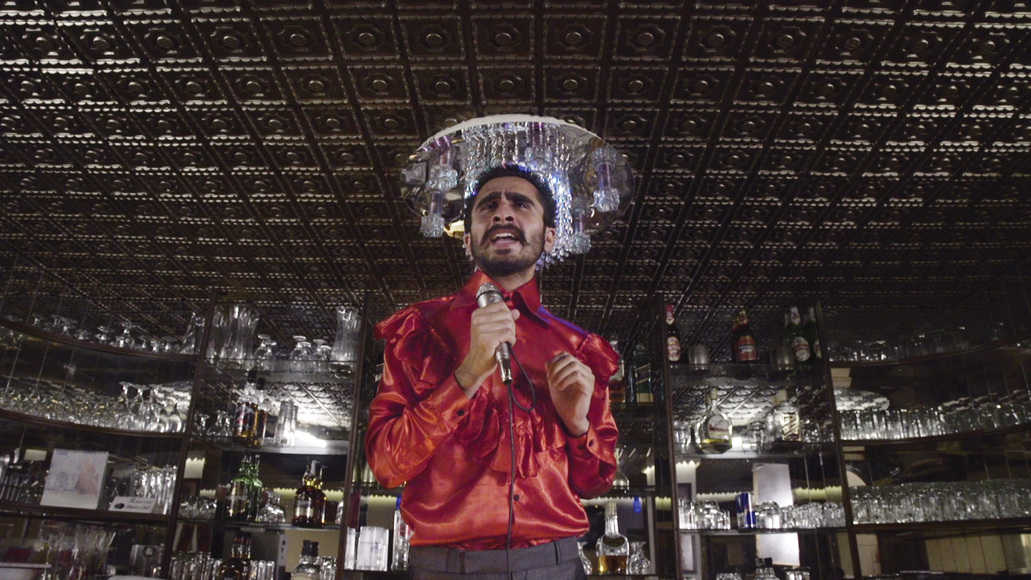In recent times, films from Okinawa have been put in the spotlight. In their search for new aspects of Japanese cinema, Western scholars and festival programmers discover the works of Yuji Nakae (“The Zen Diary”, 2022) and other local directors to display a culture, which is in tune with nature and in strict contrast to the concrete jungle of the metropolis. Tsukasa Kishimoto (“Okinawan Blue”, 2019) is part of this new Okinawa cinema. Although, he is no rookie anymore. “Happy Sandwich” is his 10th movie and carries on the tradition of a local-based storyline.
Happy Sandwich is screening at Kimolos International Film Festival

Set in the northern part of Okinawa, known as Yanbaru, Manna, the chef of a BBQ restaurant is given the task of creating a special sandwich as an offering to the gods. To fulfill the request of the priest, he travels around the island and meets with several people involved in the food sector, each of them introducing their favorite sandwich to him. As he moves on, Manna begins to understand the ideas and lifestyles evolving around sustainable agriculture and the sense of community.
Check also this interview
“Happy Sandwich” begins with no explanation and a bleak portrayal of Manna's daily routine at his house. Loosely based on the plot, the movie starts to deteriorate from its premise and turns into a documentary introducing the audience to the local businesses and the characters who run them. After the first minutes, it becomes apparent that this is more than just a shallow countryside tale, but a holistic representation of companionship. Kishimoto focuses on the spirit of mutual help by showing interviews with farmers, fishermen, beekeepers, and caterers. In doing so, “Happy Sandwich” illustrates the close bounds between these suppliers and fills the remote landscape with a lively project that also cares about the environment. Especially the dialogue between the pork-fanatic Manna and the head of the local vegan society shows a discussion on a level playing field affected by respect and understanding.
The peaceful atmosphere is guided by an off-screen narrator and a jazzy soundtrack, which emphasises the rural ambiance of the film. Shogo Manna plays himself as a chef. His informal appearance and laid-back character fit very well and he never misses the right kind of sobriety at the right moment. Apart from the fairly unknown Yayoi Shiroma (“Girl at the Sea”, 2016), who plays the priest Haru, the rest of the cast consists of amateur actors and/or actual people, who play themselves. The fact that there are barely any professionals in front of the camera does not hinder the meaning, but rather distributes to the purpose of “Happy Sandwich”. Authenticity is one of the major plus points to convey the message of becoming one with nature, not exploiting its resources and giving a prime example of a healthy lifestyle.
Although Kishimoto delivers a rather commercial spot about the region, the technical aspects of his movie are very entertaining. A diversified cinematography picks up playful takes and changes between moving POV shots and slow wide-angle sequences. In particular, the driving scenes on Manna's red truck, closing in on his face and simultaneously capturing the scenery around him, are very experimental and refreshing. In contrast to the rigid and detailed on-location recordings of food menus and local specialties, these moments slacken up the informative parts of the storyline.
Since “Happy Sandwich” is a movie about the region, it is obvious that there is a lot of on-location shooting and real residents of Yanbara involved. Drone shots, lengthy interviews, and many repetitive close-ups of prepared food. The director picks up a common theme in Japanese cinema, which is food, and turns it into a community project and, at the same time, he challenges the viewer to think about his own consumption habits. This can be too educational at times but, nevertheless, goes way beyond the usual travel report. On the pretext of the divine duty the viewer gets a lot of information about Okinawan culture but is not overloaded with its background. Equipped with a rich religious and cultural history, Okinawan films often tend to confuse the Western moviegoer not knowing about the references.
By choosing the topic of a culinary journey around the island, Kishimoto picks up a universal theme and draws the uplifting conclusion: “No matter what, do it with love.”















